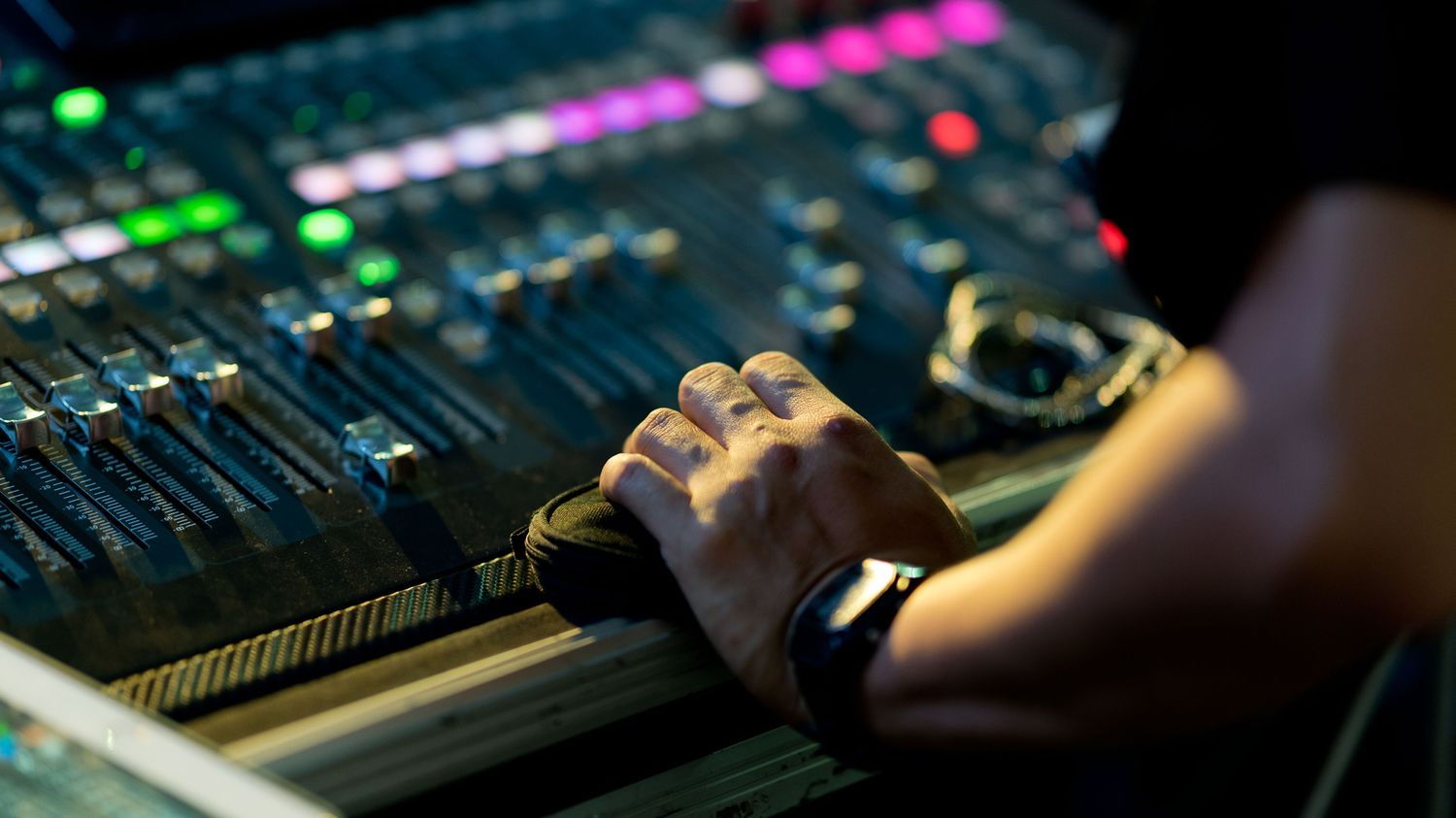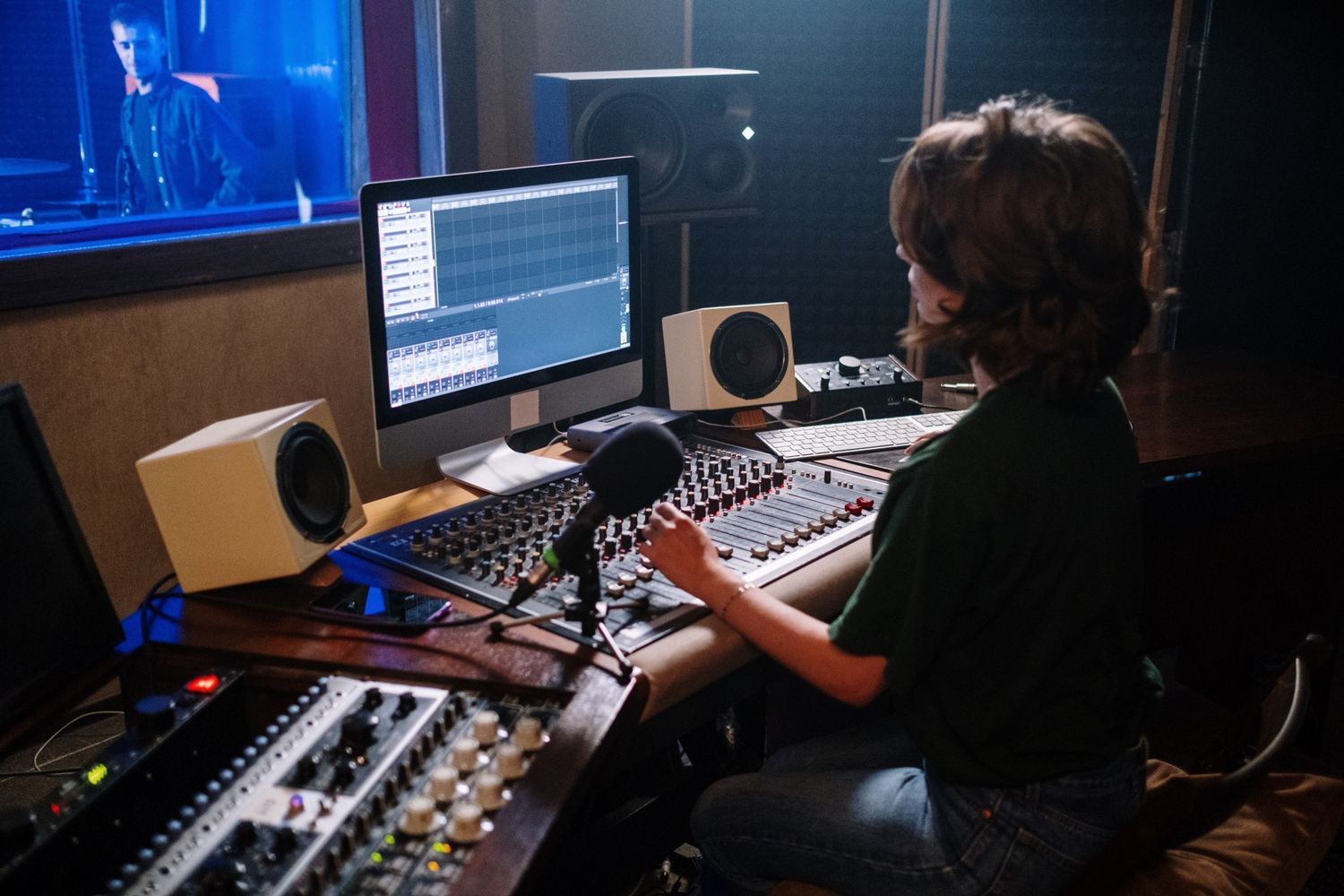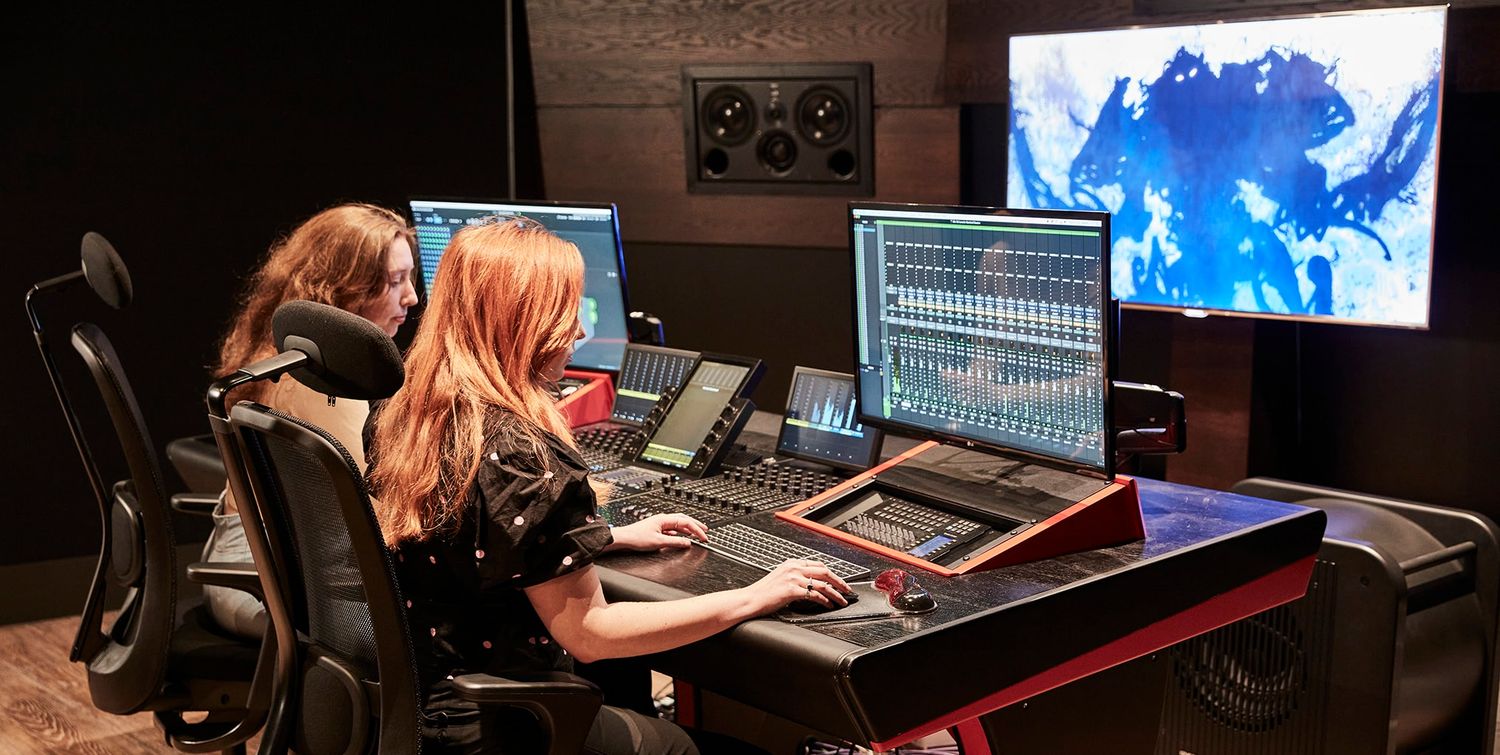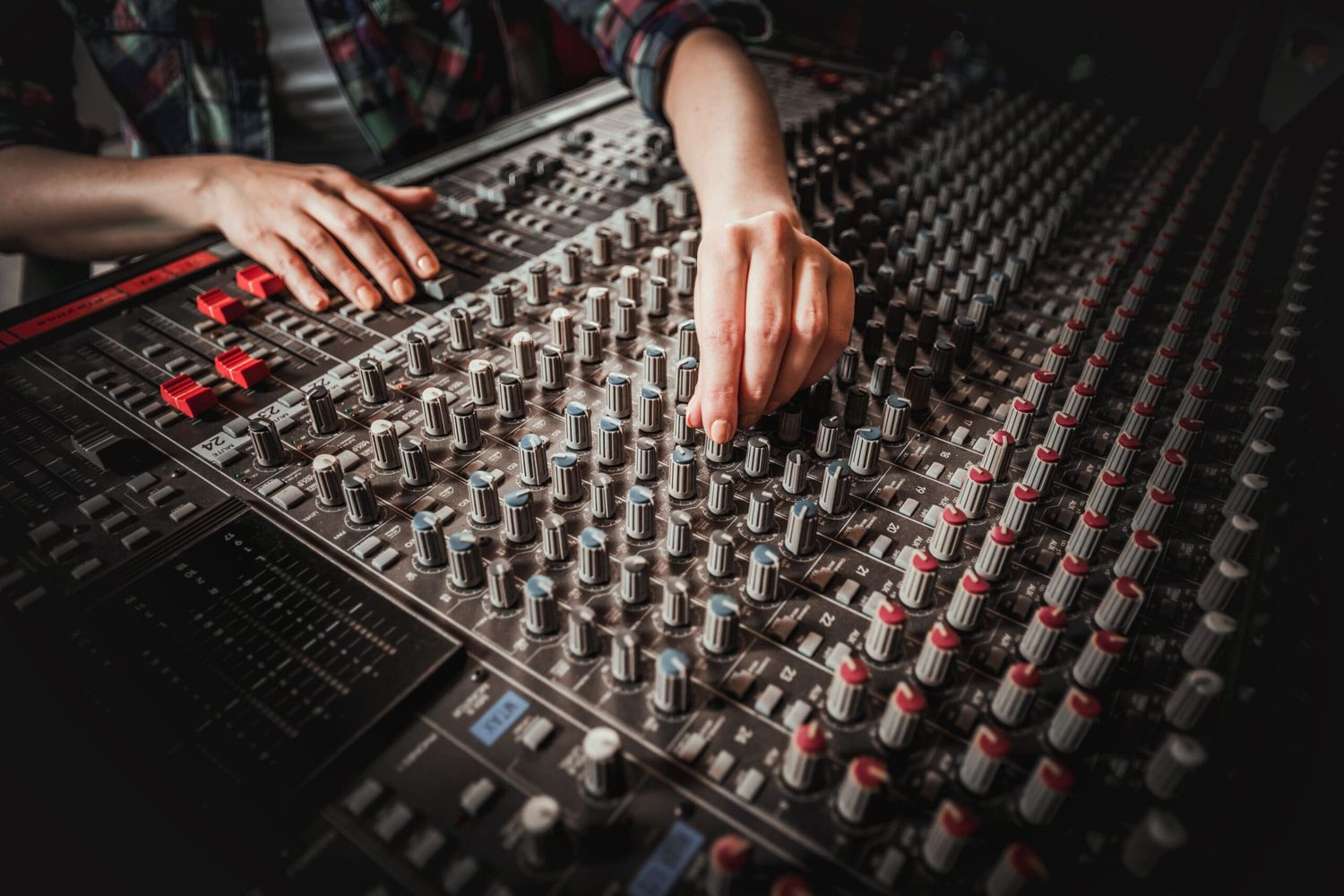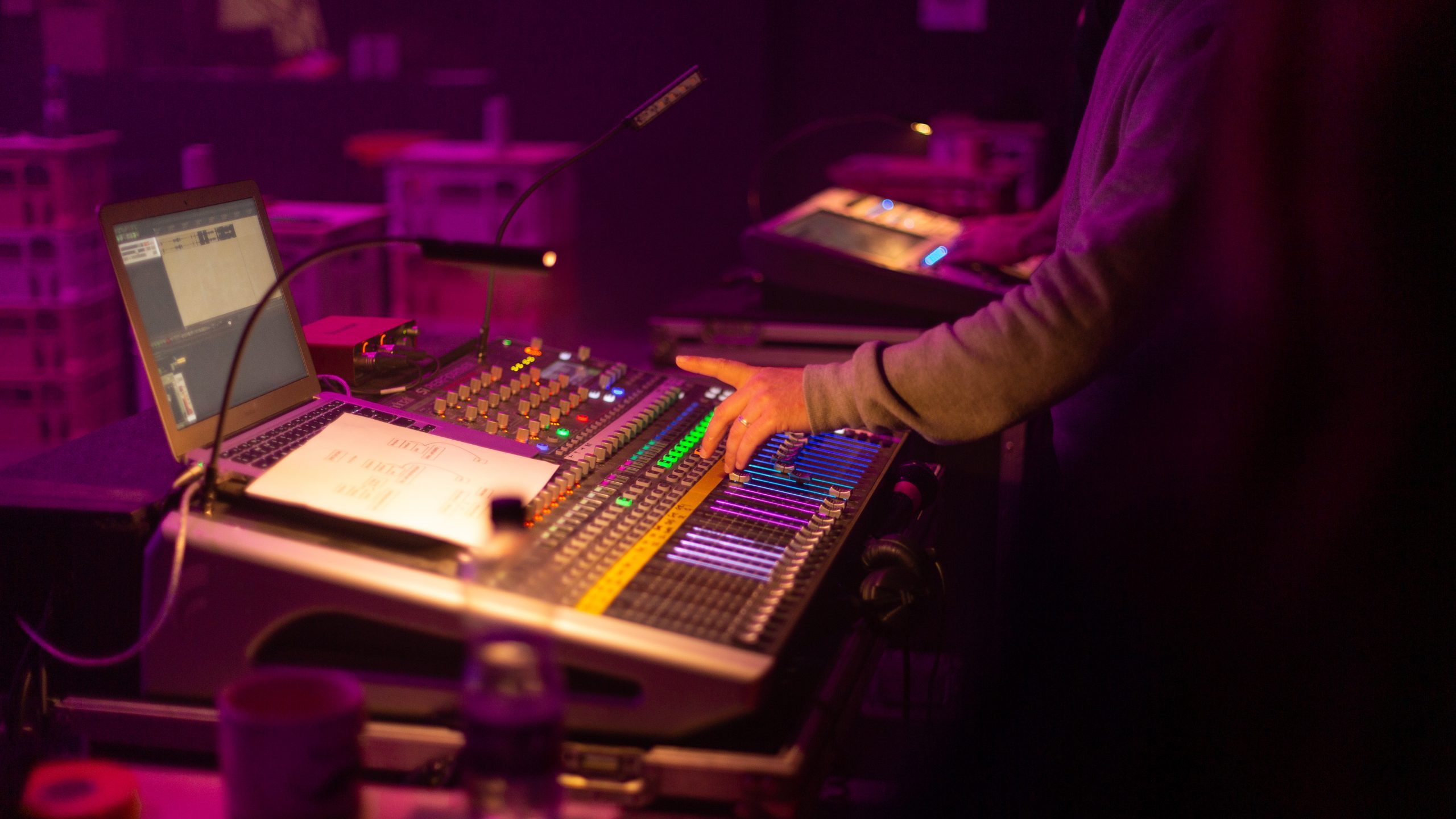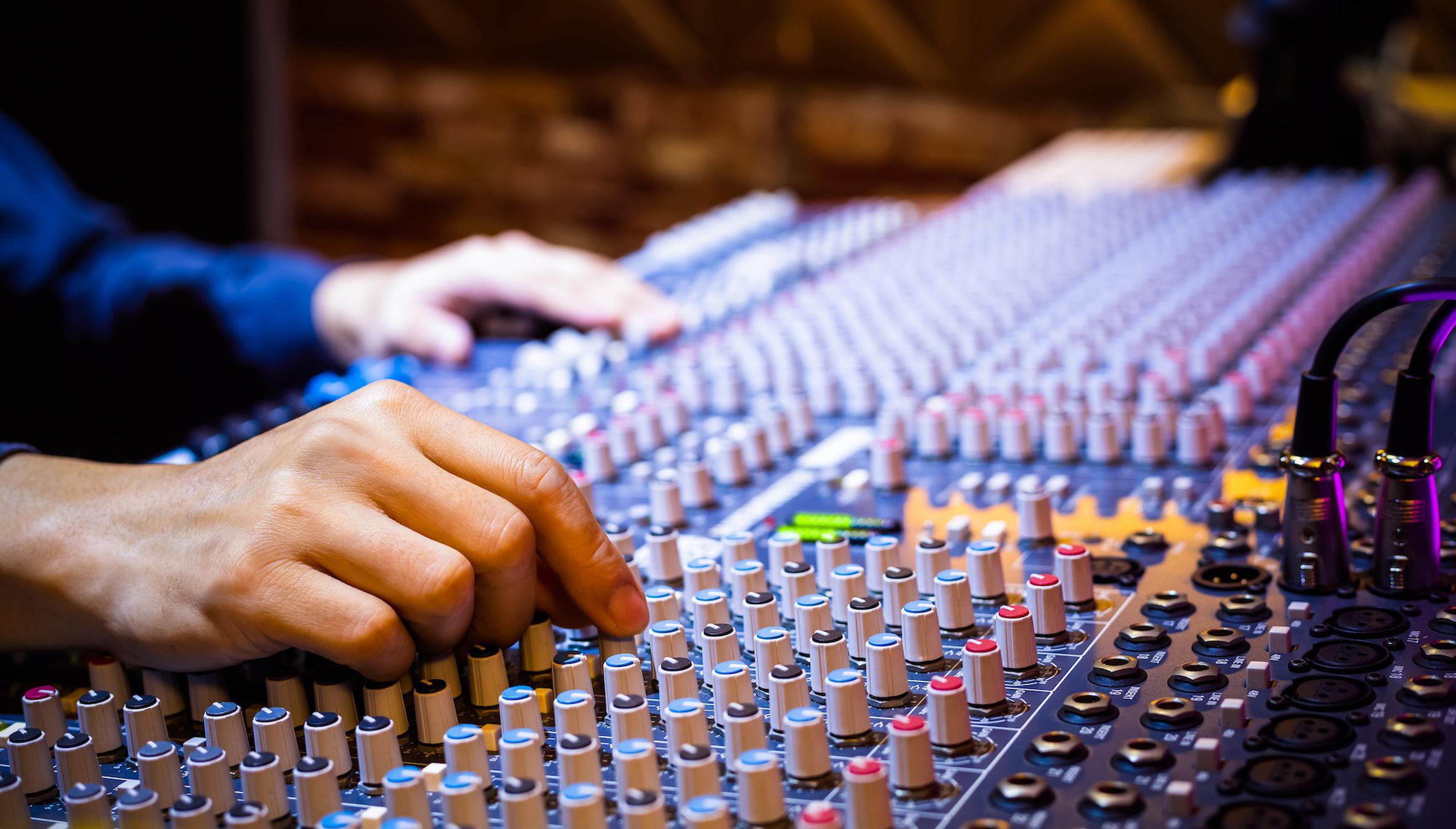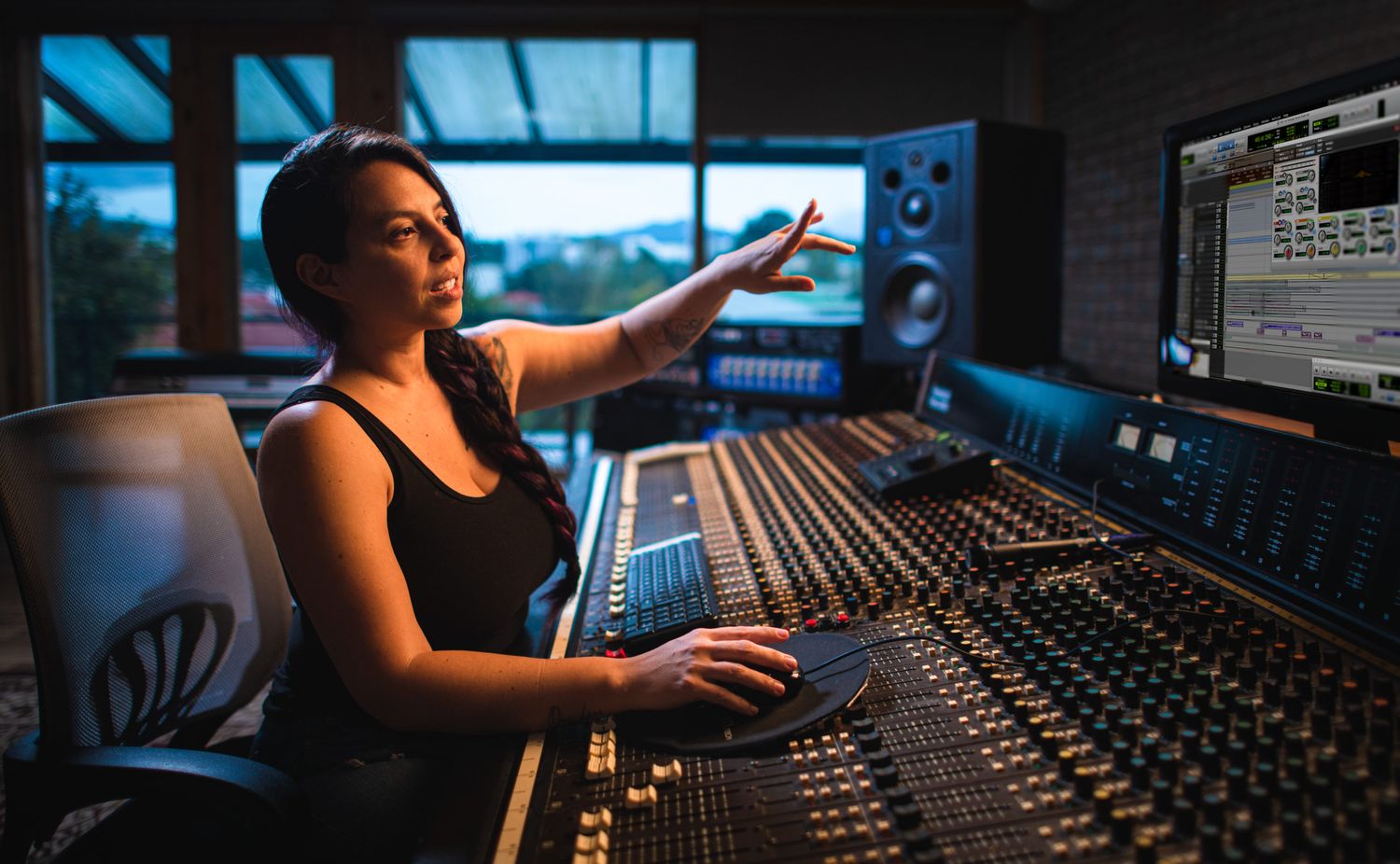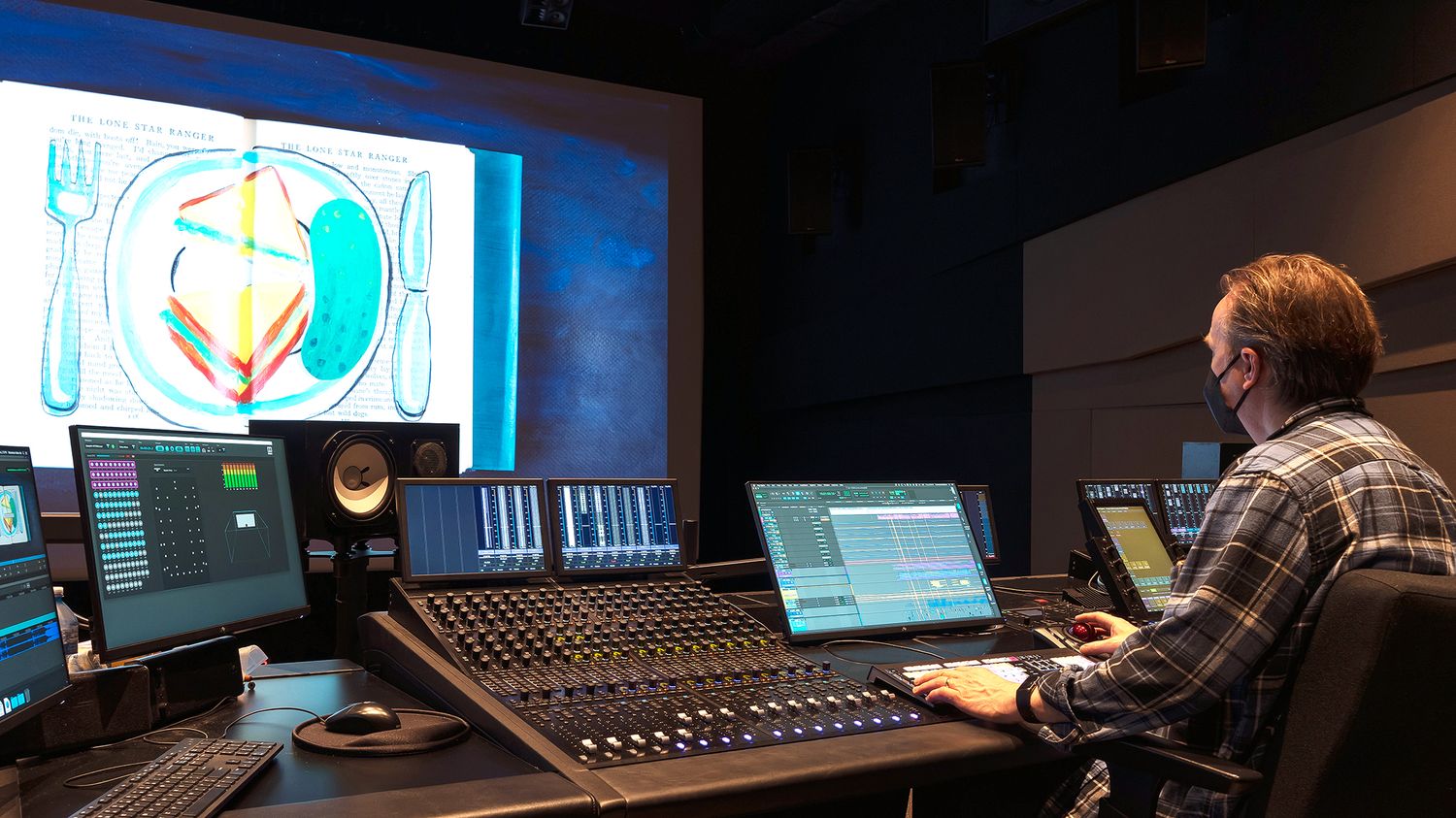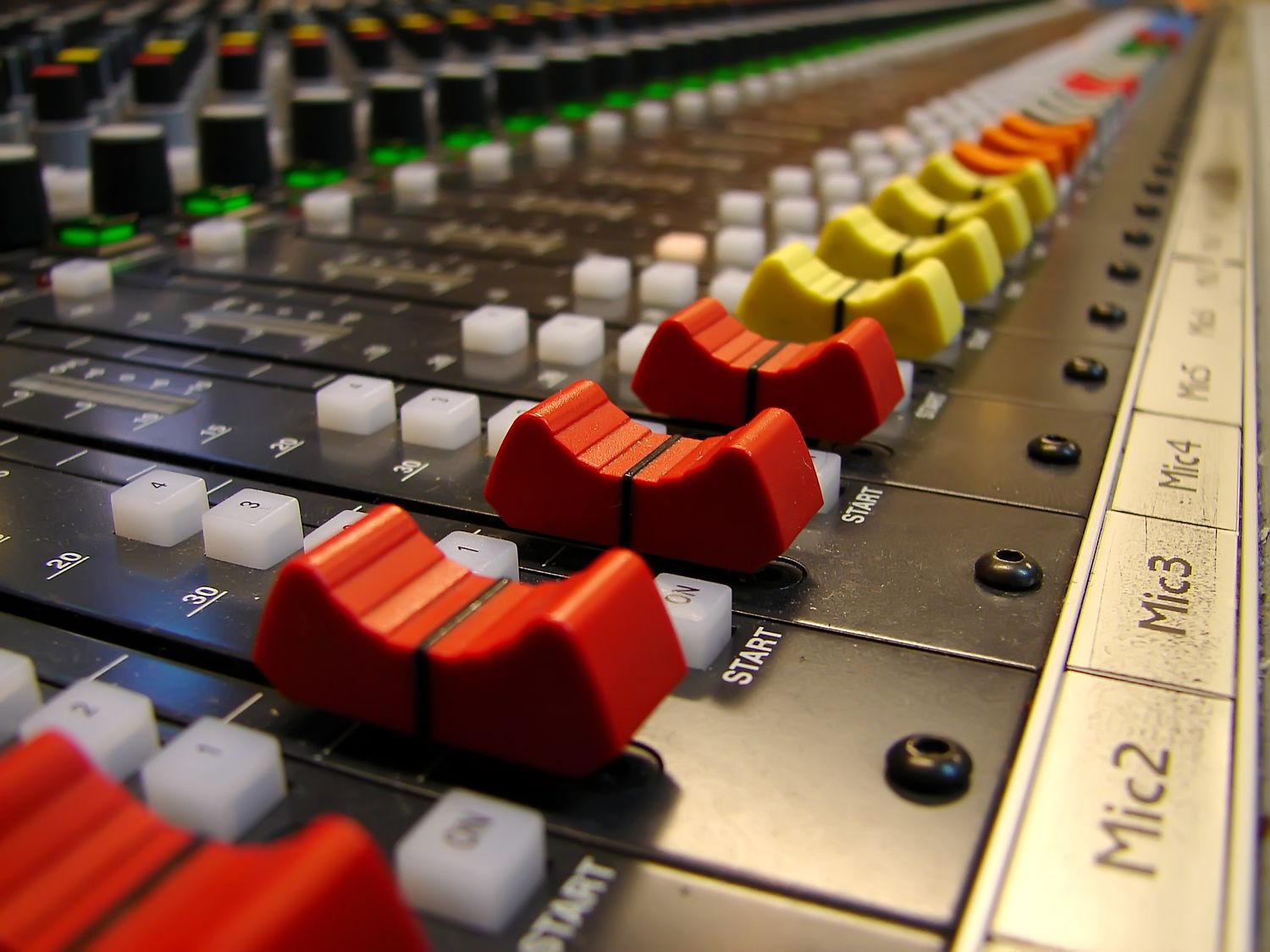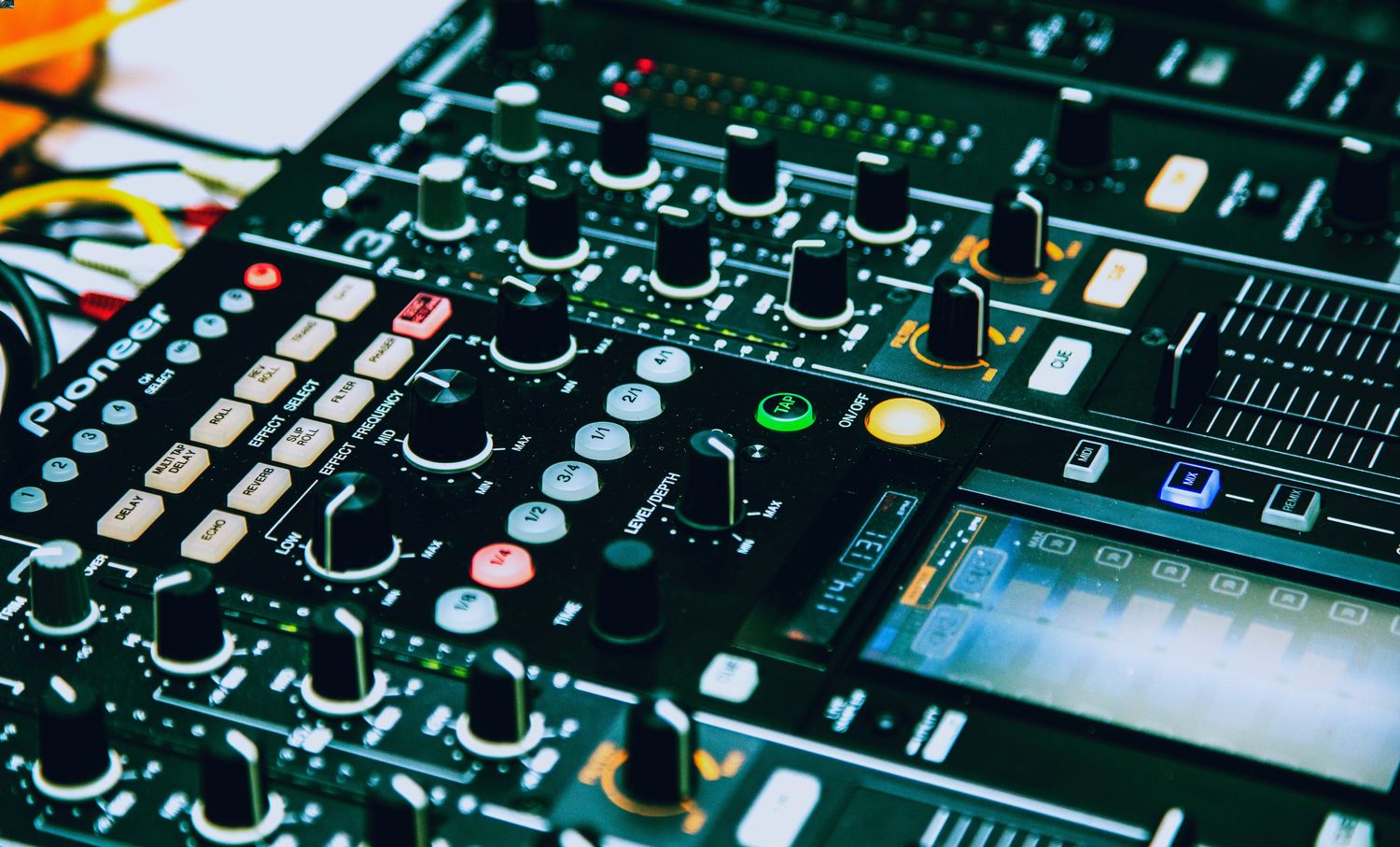Home>Production & Technology>Sound Engineer>What Is The Job Of A Sound Engineer?
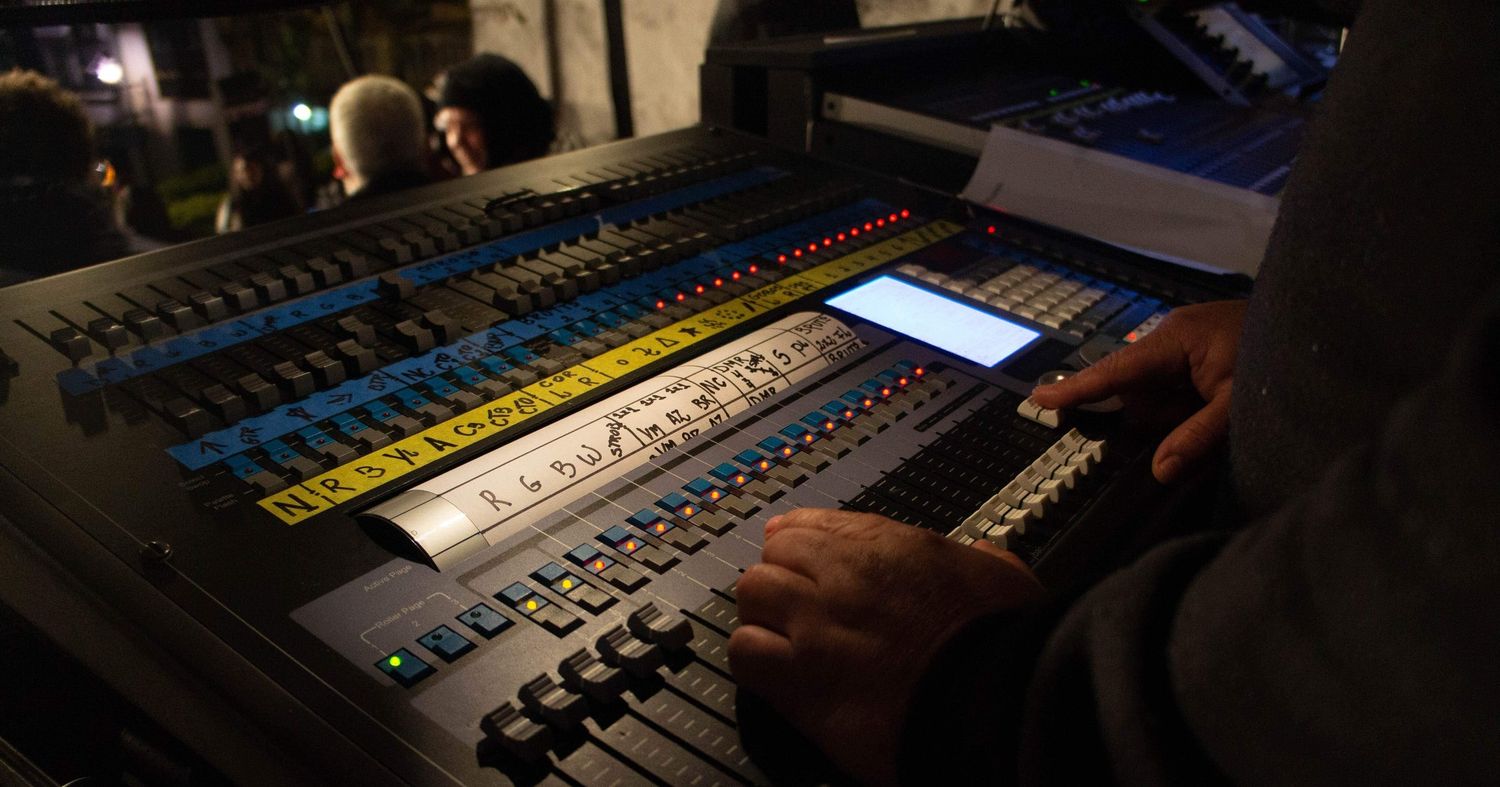

Sound Engineer
What Is The Job Of A Sound Engineer?
Published: March 7, 2024
Discover the role and responsibilities of a sound engineer in the music and entertainment industry. Learn about the skills and qualifications needed to excel in this dynamic profession. Gain insights into the exciting world of sound engineering.
(Many of the links in this article redirect to a specific reviewed product. Your purchase of these products through affiliate links helps to generate commission for AudioLover.com, at no extra cost. Learn more)
Table of Contents
Introduction
Sound engineering is a fascinating and crucial aspect of the music and entertainment industry. It involves the art and science of recording, manipulating, and reproducing sound using various technical equipment and software. Sound engineers, also known as audio engineers, play a pivotal role in ensuring that the audio elements of a production, whether it's a live concert, studio recording, film, or television show, are of the highest quality.
The job of a sound engineer is multifaceted, requiring a blend of technical expertise, creativity, and a keen ear for detail. They are responsible for capturing and mixing audio to create a seamless and immersive sonic experience for the audience. Whether it's adjusting the sound levels during a live performance, fine-tuning the audio tracks in a recording studio, or designing sound effects for a film, sound engineers are the unsung heroes behind the scenes, shaping the way we perceive and enjoy sound.
Sound engineering is not just about operating equipment; it's about understanding the physics of sound, acoustics, and the intricacies of audio technology. It's about knowing how to use microphones, mixers, equalizers, and other audio processing tools to achieve the desired sound. Moreover, sound engineers must stay updated with the latest advancements in audio technology and software to deliver cutting-edge results.
In addition to technical skills, sound engineers need to have a creative mindset to bring a unique sonic vision to life. They work closely with musicians, producers, directors, and other professionals to understand their artistic goals and translate them into captivating soundscapes. This collaborative aspect of the job requires effective communication and the ability to adapt to the creative preferences of the artists and creators they work with.
Overall, the role of a sound engineer is dynamic and essential, contributing significantly to the overall quality of audio productions. It's a profession that demands a blend of technical prowess, artistic sensibility, and a passion for delivering exceptional auditory experiences. Throughout this article, we will delve deeper into the responsibilities, skills, working environment, and career opportunities in the field of sound engineering, shedding light on the diverse and exciting aspects of this profession.
Responsibilities of a Sound Engineer
-
Capturing and Recording Sound: Sound engineers are responsible for setting up and operating recording equipment to capture high-quality audio. Whether in a studio or a live setting, they use microphones, preamps, and other recording devices to ensure that every sound is captured with precision and clarity.
-
Mixing and Mastering: One of the key responsibilities of a sound engineer is to mix and master audio tracks to achieve the desired sonic balance and quality. This involves adjusting the levels of individual sound elements, applying effects, and ensuring that the final mix is cohesive and polished. In the mastering stage, sound engineers fine-tune the overall sound of the recording to optimize its playback across different systems.
-
Live Sound Reinforcement: In live music events, sound engineers manage the sound reinforcement systems to ensure that the audience experiences clear and balanced sound. This involves setting up and calibrating speakers, amplifiers, and other audio equipment, as well as controlling sound levels during the performance to maintain optimal audio quality.
-
Sound Design and Effects: For film, television, and gaming projects, sound engineers are involved in creating and integrating sound effects to enhance the overall audio-visual experience. This includes designing and manipulating sounds to match the creative vision of the project, whether it's crafting realistic environmental sounds or producing imaginative, otherworldly effects.
-
Troubleshooting and Maintenance: Sound engineers are adept at troubleshooting technical issues related to audio equipment and systems. They ensure that all gear is functioning properly and address any issues that may arise during recording sessions or live events. Additionally, they are responsible for the maintenance and upkeep of audio equipment to prolong its lifespan and performance.
-
Collaboration and Communication: Sound engineers work closely with artists, musicians, producers, and other professionals to understand their creative objectives and translate them into captivating soundscapes. Effective communication and collaboration are essential as sound engineers strive to bring the artistic vision to life while incorporating their technical expertise and creative insights.
-
Adhering to Industry Standards: Sound engineers must stay updated with industry standards and best practices related to audio recording, mixing, and production. They ensure that the audio output meets the required technical specifications and quality benchmarks, whether it's for commercial releases, broadcast, or live performances.
-
Attention to Detail: A keen ear for detail is crucial for sound engineers, as they meticulously listen to and analyze audio recordings to identify and address imperfections or inconsistencies. This attention to detail contributes to the overall quality and coherence of the audio output.
Sound engineers play a pivotal role in shaping the auditory experience across various media platforms, and their diverse responsibilities underscore the depth and significance of their contributions to the world of sound engineering.
Skills and Qualifications
Sound engineering is a specialized field that demands a unique blend of technical expertise, creative acumen, and a deep understanding of audio principles. Aspiring sound engineers should possess a diverse set of skills and qualifications to thrive in this dynamic profession. Here are the essential skills and qualifications required to excel in the field of sound engineering:
Technical Proficiency:
Sound engineers must have a strong command of audio equipment, recording software, and sound processing tools. Proficiency in operating recording consoles, microphones, amplifiers, equalizers, and digital audio workstations (DAWs) is essential. Additionally, a thorough understanding of signal flow, audio routing, and studio acoustics is crucial for achieving optimal sound quality.
Audio Editing and Mixing:
Proficiency in audio editing and mixing is paramount for sound engineers. They should be adept at manipulating audio tracks, applying effects, adjusting levels, and creating a cohesive mix. Familiarity with industry-standard mixing software and plugins, as well as the ability to sculpt sound to meet artistic objectives, is a fundamental skill for sound engineers.
Acoustic Knowledge:
A deep understanding of acoustics and sound physics is vital for sound engineers. They must comprehend how sound behaves in different environments, the principles of sound propagation, and the impact of room acoustics on recording and mixing. This knowledge enables sound engineers to optimize audio capture and reproduction in diverse settings.
Musical Understanding:
Having a musical background or a strong understanding of music theory and composition is advantageous for sound engineers. This knowledge allows them to communicate effectively with musicians, understand musical dynamics, and make informed decisions when shaping the sonic characteristics of a recording or live performance.
Problem-Solving Abilities:
Sound engineers encounter technical challenges and unexpected issues during recording sessions and live events. The ability to troubleshoot equipment, address audio anomalies, and adapt to changing circumstances is a valuable skill. Sound engineers should be resourceful problem solvers who can maintain composure under pressure and find effective solutions in real-time.
Communication and Collaboration:
Effective communication is essential for sound engineers, as they often collaborate with artists, producers, and other professionals. The capacity to translate creative concepts into technical implementations, actively listen to feedback, and work harmoniously within a team is crucial. Strong interpersonal skills facilitate seamless collaboration and the realization of artistic visions.
Education and Training:
While formal education is not always a prerequisite, many sound engineers pursue degrees or certifications in audio engineering, music production, or related fields. These programs provide comprehensive training in sound recording techniques, audio technology, and industry practices. Additionally, hands-on experience through internships or apprenticeships can significantly enhance practical skills and industry knowledge.
Passion for Sound:
Above all, a genuine passion for sound and audio technology is a driving force for sound engineers. A deep appreciation for the intricacies of sound, a curiosity for exploring new sonic possibilities, and a commitment to delivering exceptional audio experiences are intrinsic qualities that fuel the dedication and creativity of sound engineers.
In summary, sound engineers should possess a diverse skill set encompassing technical proficiency, creative insight, problem-solving abilities, and effective communication, combined with a solid foundation of acoustic knowledge and a genuine passion for the art of sound. These skills and qualifications form the bedrock of a successful career in sound engineering, enabling professionals to navigate the complexities of audio production with precision and artistry.
Equipment and Tools
The realm of sound engineering is intricately intertwined with a diverse array of equipment and tools that form the backbone of audio production and manipulation. From state-of-the-art recording devices to precision audio processing tools, sound engineers rely on a comprehensive arsenal of equipment to capture, shape, and refine sound. Here's a detailed exploration of the essential equipment and tools utilized by sound engineers across various domains of audio engineering:
Microphones:
Microphones are fundamental tools for capturing sound, and they come in a variety of types, including condenser, dynamic, and ribbon microphones. Each type offers distinct characteristics suited for specific recording scenarios. Condenser microphones excel in capturing detailed nuances, making them ideal for studio vocals and acoustic instruments. Dynamic microphones are robust and versatile, often used for live performances and instrument amplification. Ribbon microphones exhibit a warm and natural sound, favored for recording strings, brass, and vintage tones. Sound engineers leverage their understanding of microphone types and placement techniques to achieve optimal sound capture.
Mixing Consoles:
Mixing consoles, also known as audio mixers or mixing boards, serve as the central hub for blending and adjusting audio signals. These consoles feature channels for connecting microphones, instruments, and playback devices, allowing sound engineers to control the levels, panning, and equalization of individual audio sources. Modern digital mixing consoles offer extensive signal processing capabilities, including built-in effects, dynamic processing, and advanced routing options. Sound engineers harness the power of mixing consoles to craft cohesive and balanced audio mixes, whether in the studio or during live performances.
Digital Audio Workstations (DAWs):
DAWs are software applications that enable sound engineers to record, edit, and mix audio tracks with precision and flexibility. These platforms provide a comprehensive suite of tools for manipulating audio, including multitrack recording, virtual instruments, MIDI sequencing, and sophisticated audio processing plugins. Sound engineers utilize DAWs to arrange and edit recordings, apply effects, and sculpt the sonic characteristics of each track. The seamless integration of DAWs with external hardware and software expands the creative possibilities for sound engineers, empowering them to realize intricate sonic visions.
Outboard Gear:
Outboard gear encompasses external audio processing equipment, such as equalizers, compressors, reverbs, and delays, which augment the sonic quality and texture of audio signals. Analog outboard gear, renowned for its warmth and character, remains a coveted asset in recording studios, adding a touch of vintage allure to audio productions. Conversely, digital outboard processors offer pristine sound shaping and precise control over audio dynamics. Sound engineers adeptly integrate outboard gear into their workflow, leveraging these tools to imbue recordings with depth, dimension, and sonic finesse.
Studio Monitors and Headphones:
Accurate monitoring is essential for sound engineers to evaluate and refine audio mixes. Studio monitors, designed for neutral and transparent sound reproduction, enable sound engineers to discern subtle details and tonal balance within their mixes. Additionally, high-quality headphones with precise frequency response and sound isolation are indispensable for critical listening and assessing audio nuances. Sound engineers rely on these monitoring tools to make informed decisions during the mixing and mastering stages, ensuring that the final audio output translates faithfully across different playback systems.
Signal Processors and Effects:
Signal processors and effects units play a pivotal role in shaping the sonic character of audio signals. From time-based effects like reverb and delay to dynamic processors such as compressors and limiters, these tools enable sound engineers to sculpt the dynamics, spatiality, and tonal richness of recordings. Whether enhancing the clarity of vocals, creating immersive spatial effects, or adding depth to instrumentals, signal processors and effects are indispensable for realizing artistic sonic visions. Sound engineers skillfully apply these tools to elevate the emotional impact and sonic allure of audio productions.
Instrumentation and Amplification:
In live sound reinforcement and studio recording, sound engineers work with a diverse range of musical instruments and amplification systems. Understanding the sonic characteristics and technical requirements of instruments, amplifiers, and speaker systems is crucial for achieving balanced and impactful sound reproduction. Sound engineers collaborate with musicians and performers to ensure that each instrument is captured and amplified with fidelity and clarity, contributing to the overall sonic tapestry of live performances and studio recordings.
Test and Measurement Tools:
Precision and accuracy are paramount in sound engineering, necessitating the use of test and measurement tools for analyzing audio signals and system performance. Tools such as audio analyzers, spectrum analyzers, and measurement microphones enable sound engineers to assess frequency response, phase coherence, and acoustic characteristics of spaces. These tools aid in calibrating sound reinforcement systems, optimizing room acoustics, and diagnosing technical issues, ensuring that audio reproduction meets stringent quality standards.
Portable Recording Devices:
In field recording and location sound capture, portable recording devices offer flexibility and mobility for sound engineers. These devices, ranging from handheld recorders to portable multitrack interfaces, enable sound engineers to capture high-quality audio in diverse environments. Whether recording ambient sounds for film, capturing live performances, or conducting on-location interviews, portable recording devices empower sound engineers to capture sonic moments with precision and immediacy.
Cable Management and Accessories:
Behind the scenes, sound engineers rely on a myriad of accessories and essential components for seamless audio connectivity and organization. This includes high-quality audio cables, connectors, patchbays, and cable management systems that facilitate efficient signal routing and connectivity. Additionally, accessories such as microphone stands, pop filters, and shock mounts contribute to the ergonomic and functional aspects of audio recording and live sound reinforcement setups.
Emerging Technologies and Innovations:
The landscape of sound engineering continually evolves with the advent of cutting-edge technologies and innovative tools. From immersive audio formats like Dolby Atmos and Ambisonics to spatial audio processing algorithms and virtual reality audio production tools, sound engineers embrace new frontiers of sonic exploration. These emerging technologies expand the creative horizons for sound engineers, offering new avenues for crafting captivating and immersive auditory experiences across various media platforms.
In essence, the equipment and tools utilized by sound engineers form a rich tapestry of sonic craftsmanship, enabling them to capture, shape, and elevate sound with precision and artistry. The seamless integration of technical prowess, creative insight, and state-of-the-art tools empowers sound engineers to realize diverse sonic visions and deliver exceptional audio experiences across the realms of music, film, gaming, and beyond.
Working Environment
The working environment of a sound engineer is as diverse as the audio productions they contribute to, encompassing a spectrum of settings that demand adaptability, technical acumen, and a keen understanding of sonic intricacies. Whether in the controlled confines of a recording studio, the electrifying atmosphere of live concert venues, or the dynamic landscapes of film and television production, sound engineers navigate a multifaceted working environment shaped by the nuances of each audio project.
In the realm of studio recording, sound engineers immerse themselves in meticulously designed spaces optimized for sonic precision. Recording studios are acoustically treated environments, engineered to minimize sound reflections and external noise, providing an ideal canvas for capturing pristine audio. Within these studios, sound engineers meticulously position microphones, fine-tune signal chains, and sculpt sonic textures, leveraging their expertise in acoustics and audio technology to achieve exceptional sound quality. The studio environment fosters a meticulous approach to audio capture and manipulation, where sound engineers meticulously craft sonic landscapes with unwavering attention to detail.
In contrast, live sound reinforcement thrusts sound engineers into the heart of dynamic and vibrant performance spaces. From intimate club stages to sprawling arenas, live sound engineers orchestrate the sonic experience for audiences, balancing technical precision with the energy of live performances. They navigate complex sound reinforcement systems, calibrate speaker arrays, and seamlessly blend audio elements to ensure that every listener experiences immersive and balanced sound. The live environment demands swift decision-making, adaptability to acoustically diverse venues, and the ability to maintain sonic clarity amidst the exhilaration of live music and entertainment.
Furthermore, the world of film, television, and gaming presents a unique working environment for sound engineers. Within the realm of post-production, sound engineers collaborate with directors, producers, and audio teams in specialized studios equipped with cutting-edge technology for sound design and mixing. They intricately weave sound effects, dialogue, and music to create immersive auditory experiences that enhance the storytelling and emotional impact of visual media. The post-production environment demands a fusion of technical prowess and creative insight, as sound engineers sculpt sonic narratives that elevate the cinematic and gaming realms.
Beyond traditional settings, sound engineers also venture into unconventional environments for field recording, capturing ambient sounds, and conducting on-location audio capture. Whether in natural landscapes, urban environments, or unconventional performance spaces, sound engineers harness portable recording devices and specialized microphones to capture the essence of diverse sonic environments, adding depth and authenticity to audio productions.
In essence, the working environment of a sound engineer is a tapestry of diverse settings, each requiring a nuanced approach to audio capture, manipulation, and reproduction. From the controlled precision of recording studios to the dynamic energy of live performances and the immersive realms of post-production, sound engineers navigate a rich and varied landscape, shaping the way we perceive and experience sound across a multitude of media platforms.
Career Opportunities
The field of sound engineering offers a myriad of compelling career opportunities for individuals passionate about audio technology, creative expression, and sonic innovation. Sound engineers can explore diverse paths within the music industry, film and television production, live event management, gaming, virtual reality, and emerging immersive media formats. The multifaceted nature of sound engineering presents a wealth of avenues for professional growth and specialization, each offering unique challenges and rewards.
In the realm of music production, sound engineers can pursue careers as studio recording engineers, mixing and mastering specialists, or live sound technicians. Studio recording engineers collaborate with artists and producers in controlled studio environments, capturing and shaping audio recordings with precision and artistry. Mixing and mastering specialists delve into the intricacies of audio post-production, sculpting sonic textures and ensuring the sonic fidelity of commercial releases. Live sound technicians thrive in the electrifying atmosphere of live music events, managing sound reinforcement systems and delivering captivating audio experiences to audiences.
Film and television production provide fertile ground for sound engineers to immerse themselves in the realm of post-production, sound design, and audio post-processing. Sound designers and Foley artists craft immersive soundscapes, integrating sound effects and ambient audio to enhance visual storytelling. Dialogue editors and re-recording mixers meticulously balance and refine audio elements, ensuring that the auditory dimension of cinematic and televised works resonates with emotional depth and narrative impact.
The gaming industry presents an exciting frontier for sound engineers, offering opportunities in interactive audio design, spatial audio implementation, and adaptive soundscapes. Sound engineers contribute to the creation of immersive gaming experiences, leveraging spatial audio technologies, dynamic soundtracks, and interactive sound design to transport players into captivating virtual worlds.
Moreover, the rise of virtual reality (VR), augmented reality (AR), and 360-degree audio formats has opened new horizons for sound engineers. Careers in spatial audio production, binaural recording, and 3D audio implementation enable sound engineers to shape the future of immersive media experiences, blurring the boundaries between physical and virtual auditory environments.
Beyond traditional domains, sound engineers can explore entrepreneurial ventures, freelance opportunities, and consultancy roles, leveraging their expertise to provide audio solutions for diverse clients and projects. The evolving landscape of audio technology, streaming platforms, and content creation presents avenues for sound engineers to carve out niche specialties, embrace emerging trends, and contribute to the ever-evolving tapestry of audio production and consumption.
In essence, the career opportunities in sound engineering are as diverse and dynamic as the sonic landscapes they shape. Whether in music, film, gaming, immersive media, or entrepreneurial pursuits, sound engineers embark on a journey of perpetual innovation, creativity, and sonic exploration, contributing to the rich tapestry of audio experiences that captivate and inspire audiences worldwide.
Conclusion
In conclusion, the role of a sound engineer is a captivating blend of technical expertise, creative artistry, and a profound appreciation for the nuances of sound. Sound engineers play a pivotal role in shaping the way we experience audio across a myriad of media platforms, from music and film to live events and emerging immersive formats. Their multifaceted responsibilities, encompassing audio capture, manipulation, and reproduction, underscore the depth and significance of their contributions to the world of sound engineering.
The journey of a sound engineer is one of perpetual exploration and innovation, navigating diverse working environments, harnessing state-of-the-art equipment and tools, and collaborating with a spectrum of creative professionals. From the controlled precision of recording studios to the dynamic energy of live performances and the immersive realms of post-production, sound engineers traverse a rich and varied landscape, sculpting sonic narratives that resonate with emotional depth and artistic vision.
The career opportunities in sound engineering are equally diverse and compelling, offering pathways for specialization, entrepreneurial ventures, and contributions to the forefront of emerging audio technologies. Whether in music production, film and television, gaming, virtual reality, or entrepreneurial pursuits, sound engineers embark on a journey of perpetual innovation, creativity, and sonic exploration, contributing to the rich tapestry of audio experiences that captivate and inspire audiences worldwide.
Ultimately, the profession of sound engineering is a harmonious fusion of technical precision and artistic expression, where sound engineers serve as the architects of auditory experiences, shaping the way we perceive and connect with sound on a profound level. Their dedication to sonic excellence, unwavering attention to detail, and commitment to delivering exceptional audio experiences underscore the indispensable role of sound engineers in the ever-evolving landscape of audio production and consumption.
As the world of sound engineering continues to evolve, propelled by technological advancements and creative ingenuity, sound engineers stand at the forefront of sonic innovation, driving the boundaries of what is possible in audio production. Their passion for sound, technical prowess, and unwavering dedication ensure that the art of sound engineering remains a vibrant and indispensable force in the realm of audio creativity and expression.

